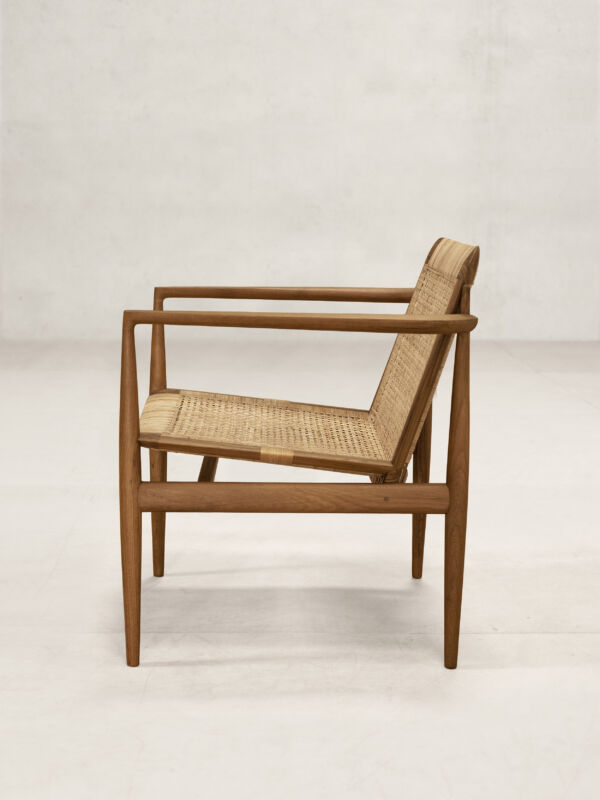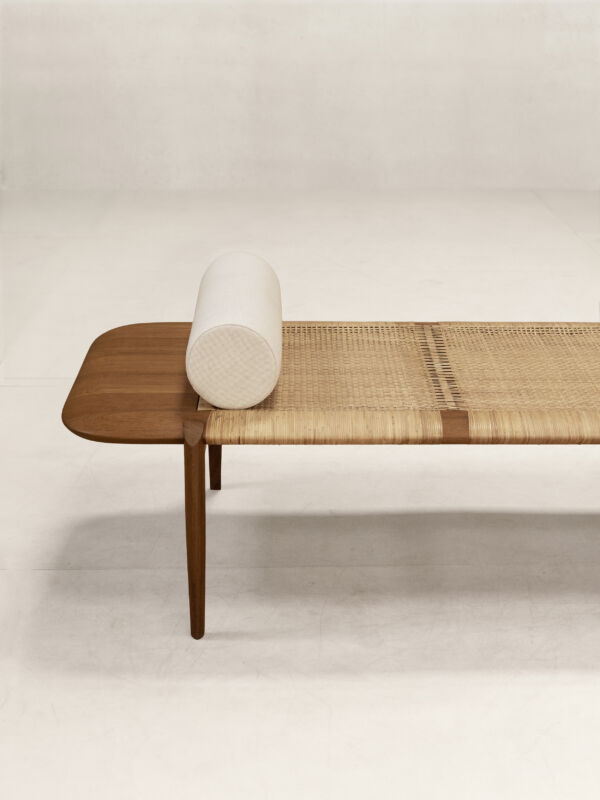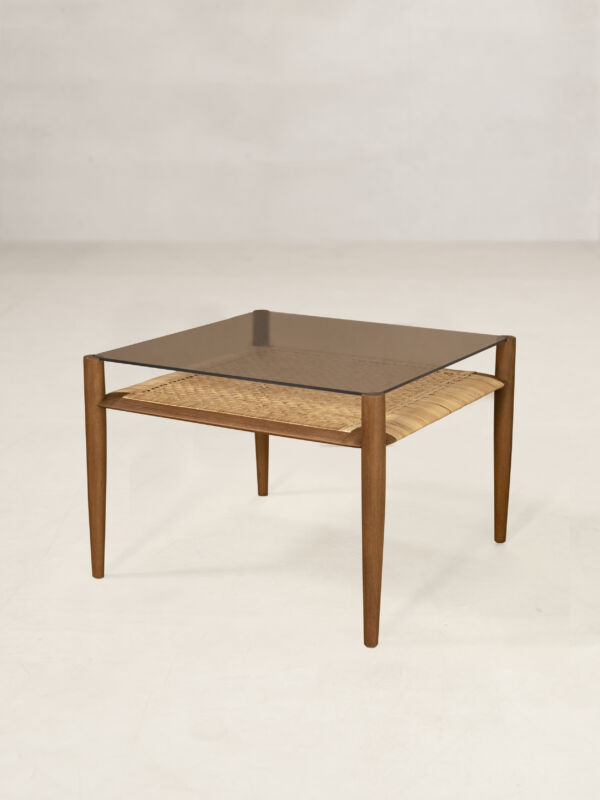Behind the Scenes of the Tangāli Collection Designed by INODA+SVEJE
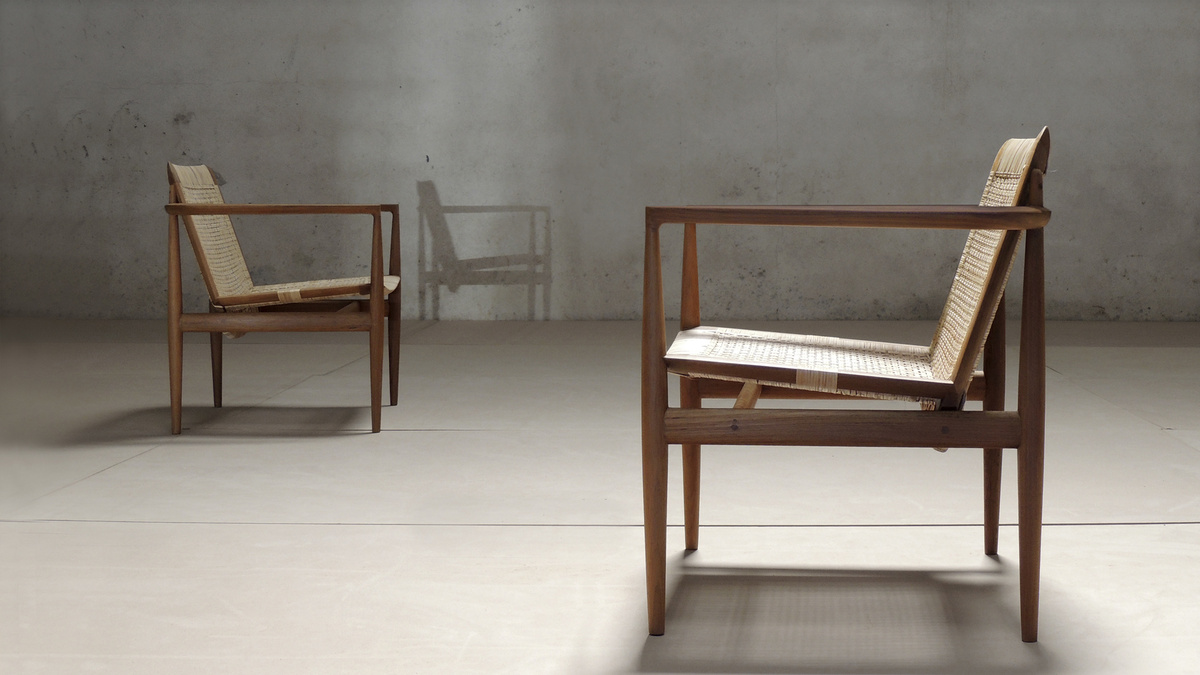
Designed by INODA+SVEJE, the Tangāli collection comprises a modular chair set, day bed, bench, and coffee tables, all featuring distinctive cane weave pattern as a signature design element.
Parni Ray
30.06.2019
Designed by INODA+SVEJE, the Tangāli collection comprises a day bed, bench, coffee table, side table, and a modular chair set. The collection, which was developed between early 2018 and late 2019, features a distinctive cane weave pattern as its signature design element.
Working With Hand Tools
The first time that Kyoko Inoda and Nils Sveje of Milan-based industrial design studio INODA+SVEJE came to the Phantom Hands workshop in Bangalore was in 2017. It was their first visit to India.
They took their time to get a feel of the crafts process and the way the craftspersons wielded their tools. It was unlike what they were used to. Instead of working on a carpentry table, for instance, they found the carpenters sitting down on the floor to work.
They discovered how this local technique allowed for much greater involvement of the body in the making process, lending to the finesse the craftspersons managed to achieve with hand tools alone.
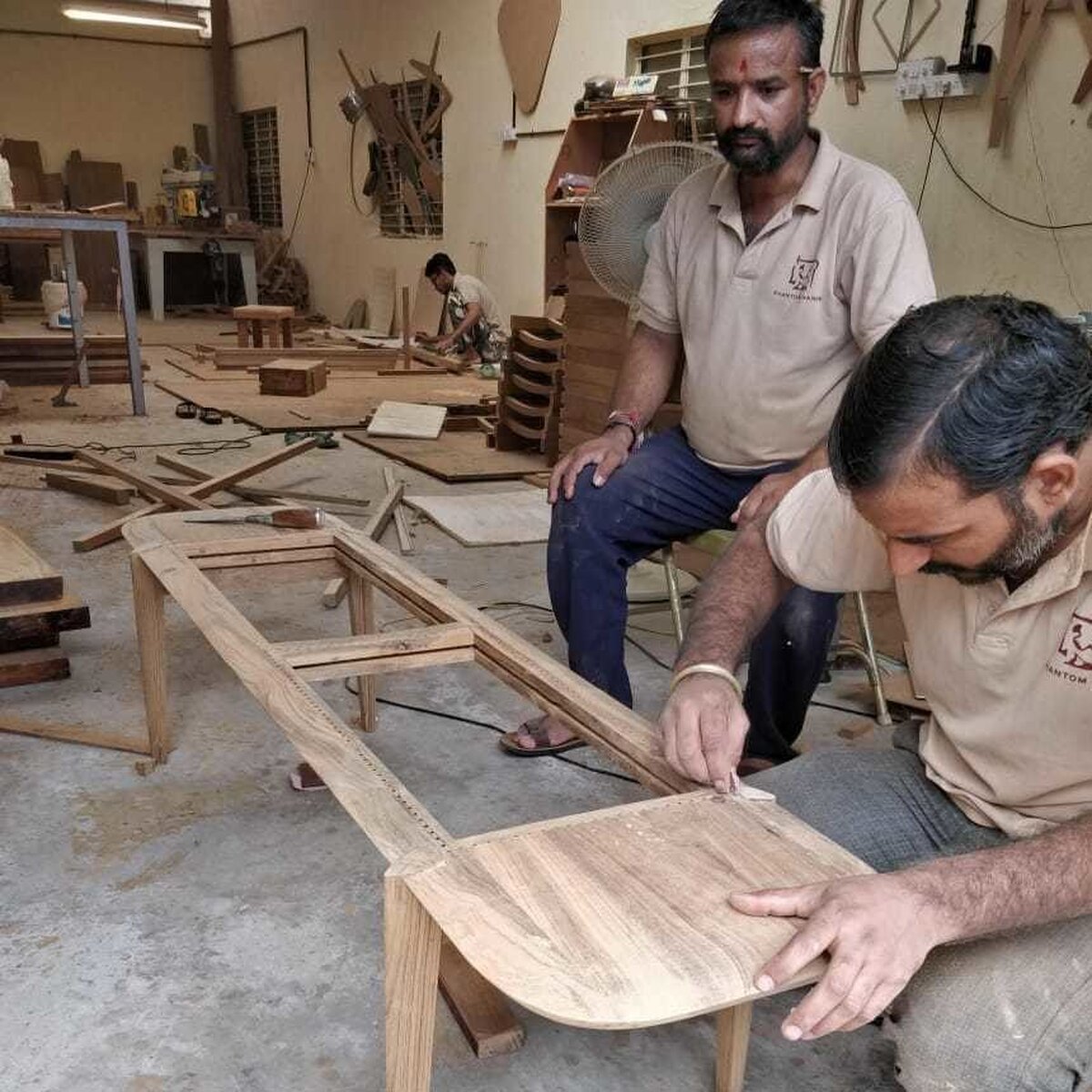
Kyoko and Nils took back all they had seen to their drawing boards. Among these was their newfound fascination with woven cane. When they returned to the Phantom Hands workshop the year after, they came armed with the intention of making cane the headliner, the ‘cherry’ atop their designs.
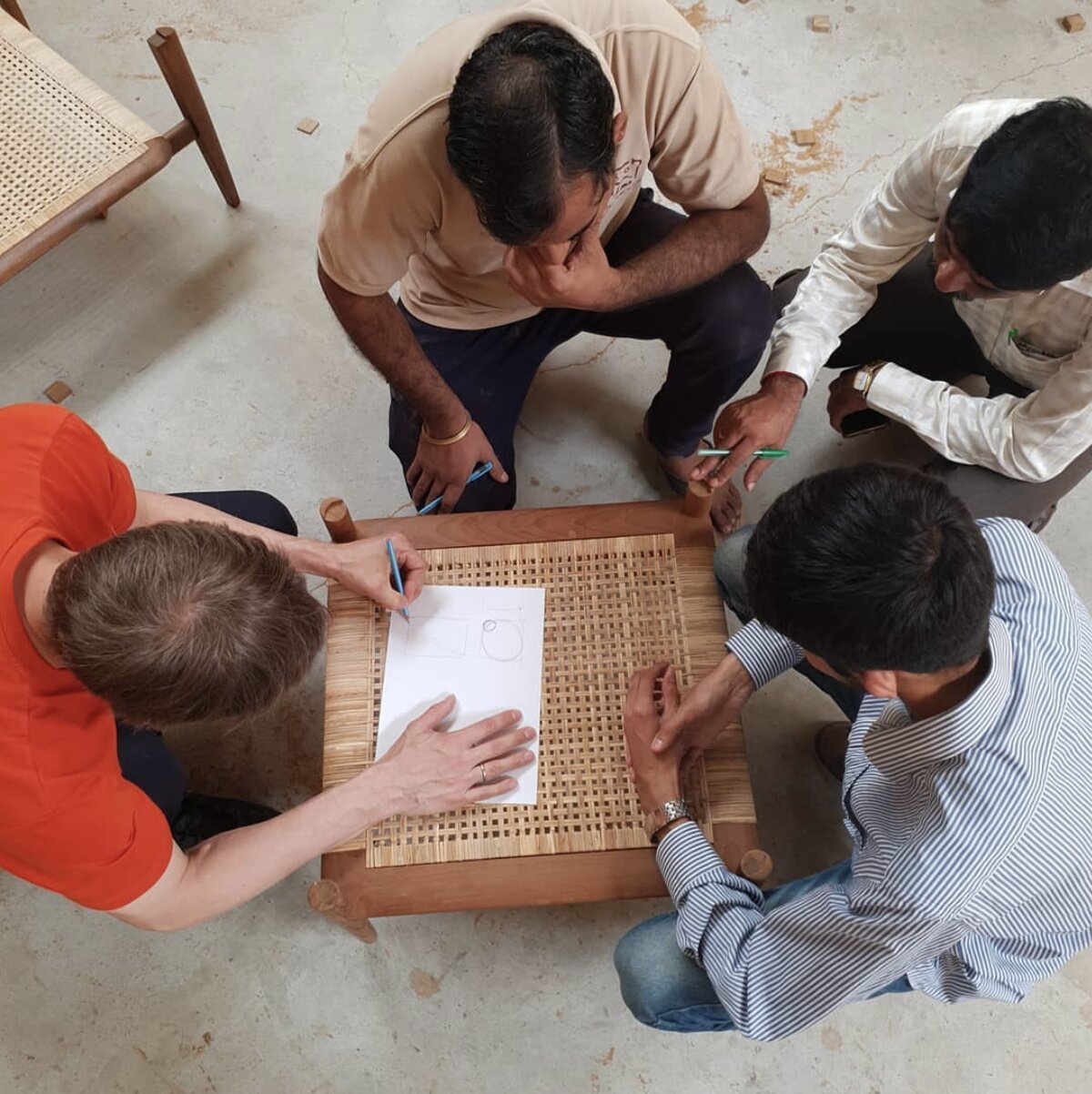
Being strenuous and time consuming, cane weaving by hand is a dying craft. In Europe, where Kyoko and Nils are based, it has been replaced almost completely by machine weaving. Cane itself has largely been abandoned in favour of plastic. Instead of being woven onto furniture frames, typically, prefabricated webbing sheets are retrofitted.
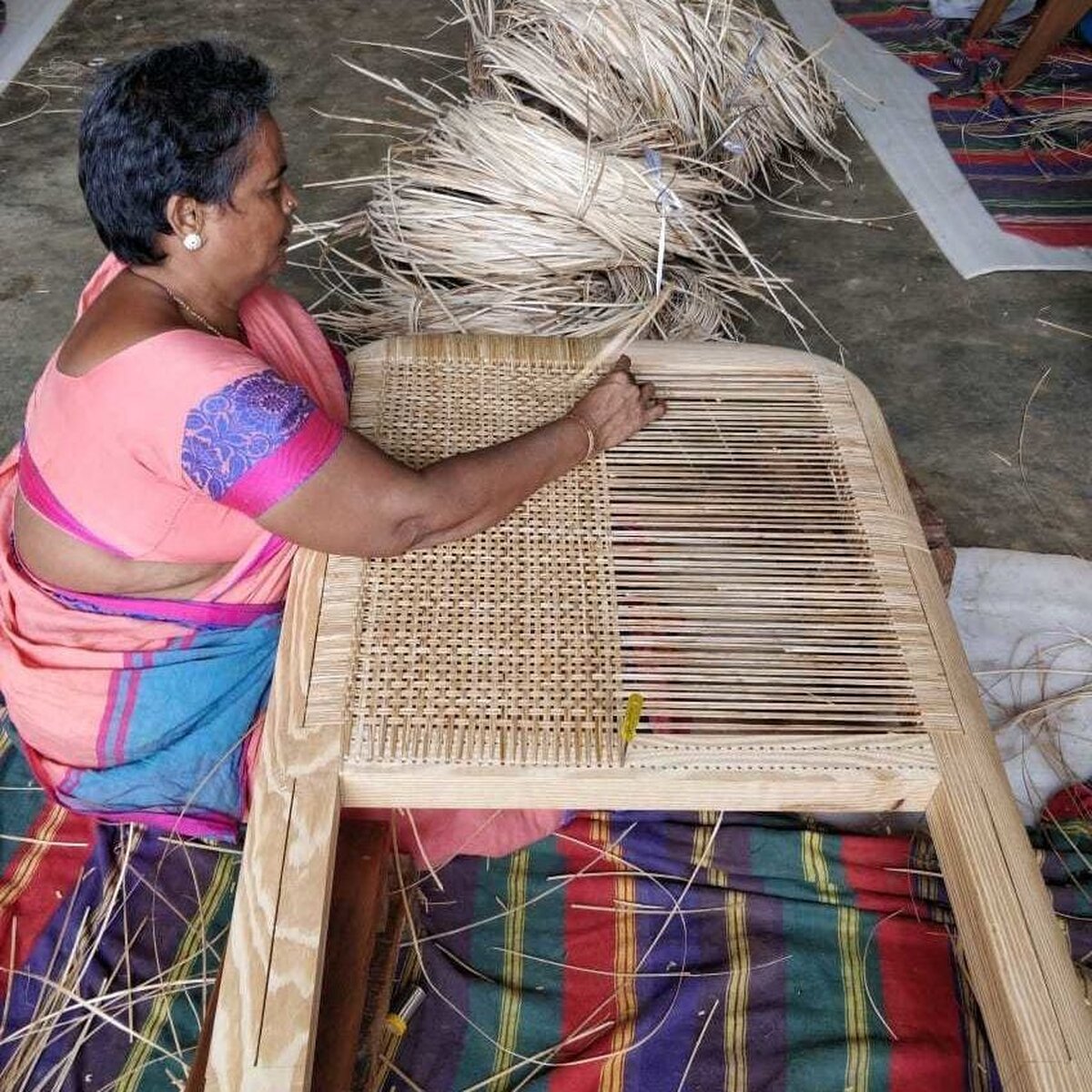
To emphasise its distinction from such furniture, the Tangāli collection incorporates weaving techniques that can only be done by hand, such as the double woven borders around the wood.
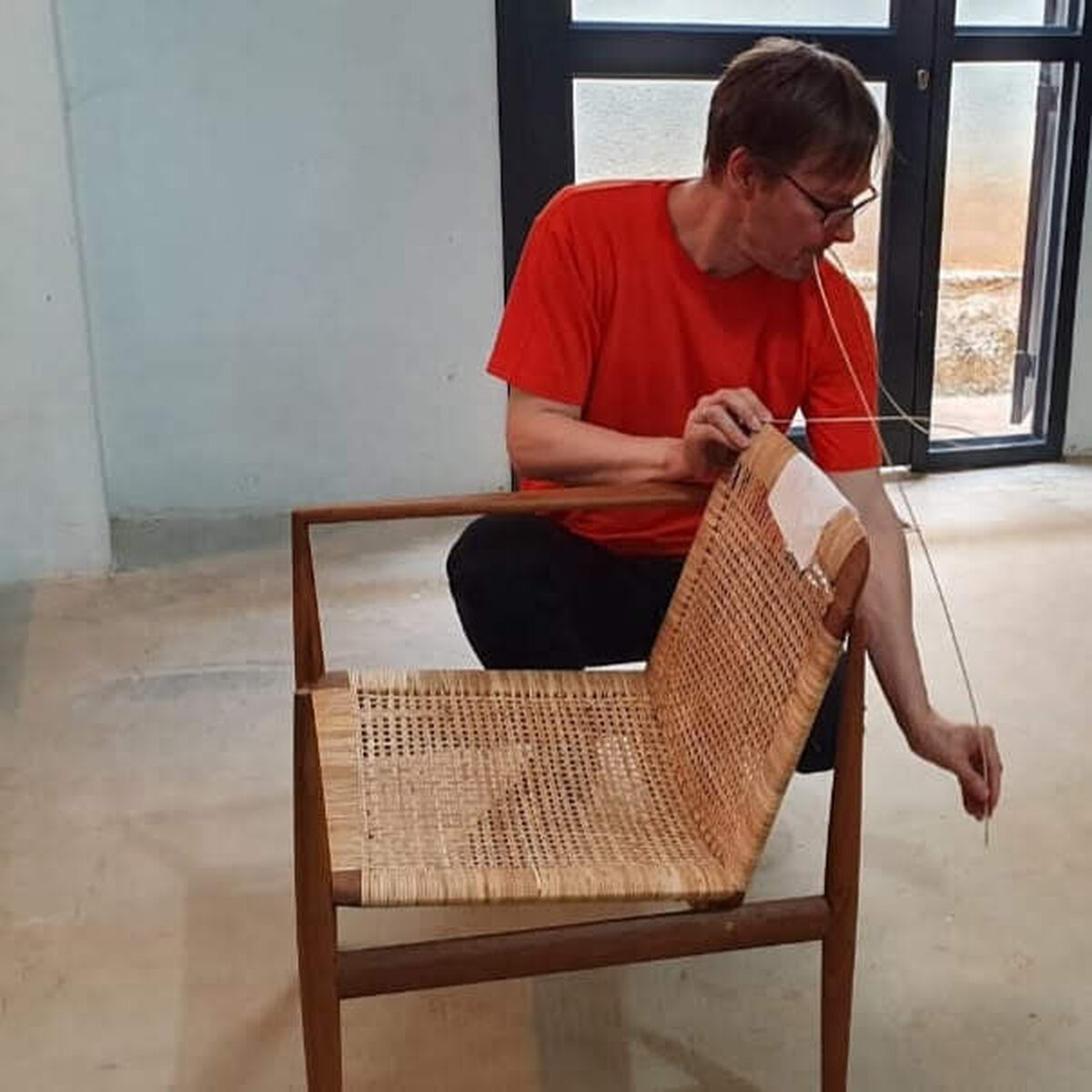
Instead of being ‘tidied’ up like in a factory-made product, the furniture also has the weaving knots visible. "The knots convey the story of the making of the chair," says Nils. They lend the furniture a tactile quality. "We may not realise it, but we all touch our furniture a lot," he says, "you will find that woven cane is quite pleasant to touch."
Featured Products
See More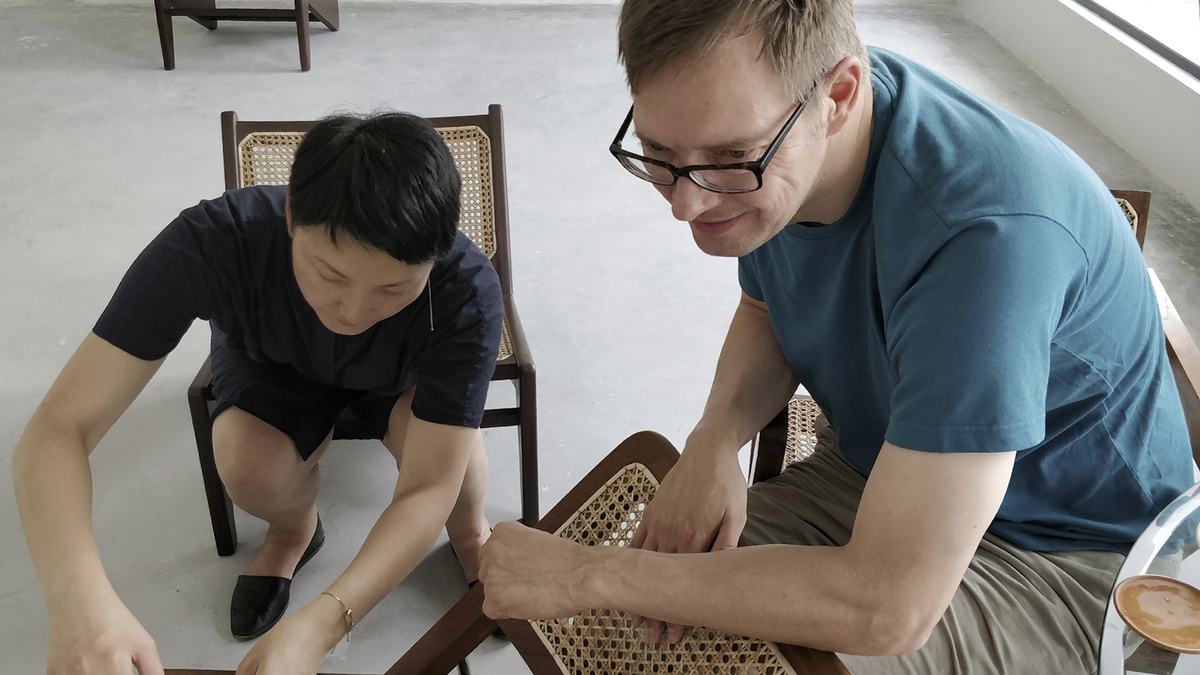
In Conversation With Design Studio INODA+SVEJE: Designing Without Straight Lines
Milan-based design duo Kyoko Inoda and Nils Sveje have spent the last two decades working with artisanal products alongside nanotechnology and mechatronics. They are also one of Phantom Hands' design collaborators.
Read More
Behind the Scenes of the Mungāru Gallery Chair Designed by INODA+SVEJE
A journal on the making of the Muṅgāru Gallery Chair and the process that went into Phantom Hands' first collaborative project with designers INODA+SVEJE.
Read More